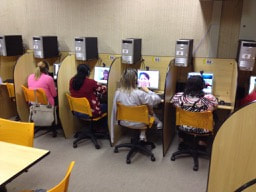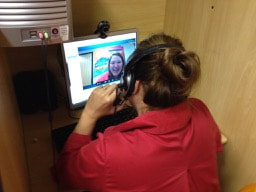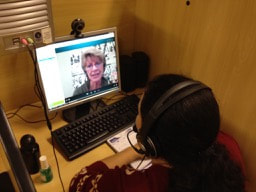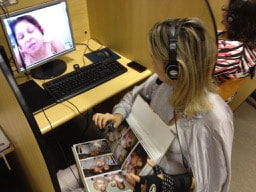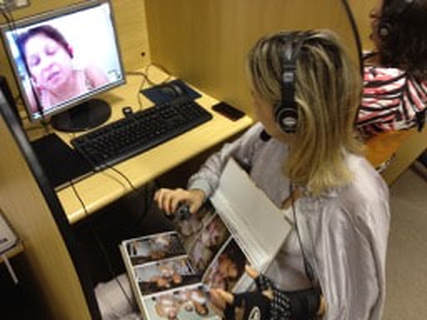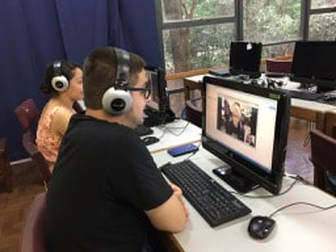Brief History
|
Challenges and aims Due to its continental dimensions and its geographical position, it is correct to say that Brazil remained (and still remains) isolated from the international community. Notwithstanding the indigenous languages of Brazil and foreign languages spoken by some immigrant communities and some of their descendants, the country remains monolingual. There are still few chances of democratic access to foreign languages. These are restricted to the upper classes of Brazilian society that can travel, pay a language course of the many private language institutes and have access to job opportunities and wages that increasingly require individuals who can speak one or more foreign languages. |
However, the development of communications mediated by computers presents new situations and technological conditions to face these challenges. Given these geographic, social, technological, economic and educational challenges that are faced by Brazilians, the Project seeks:
• democratic and unfettered access to international learning environments provided by these new technologies;
• democratic and unfettered access for young students and new teachers of foreign languages to new technologies that allow them to learn, practice and communicate with native (or proficient) speakers of these languages;
• transformative practices in the development of new teachers of foreign languages to deal with these new communication technologies, so that their students will be engage in virtual transcultural contacts with the people, the cultures and the languages in which these new teachers will be graduating in our universities ; and
• the establishment and effectiveness of educational policies towards the learning of foreign languages on the part of government and research development agencies. Knowing foreign languages is, after all, an important requirement to education and to citizenship.
One of the world pioneer projects in online tandem since 2006
• democratic and unfettered access to international learning environments provided by these new technologies;
• democratic and unfettered access for young students and new teachers of foreign languages to new technologies that allow them to learn, practice and communicate with native (or proficient) speakers of these languages;
• transformative practices in the development of new teachers of foreign languages to deal with these new communication technologies, so that their students will be engage in virtual transcultural contacts with the people, the cultures and the languages in which these new teachers will be graduating in our universities ; and
• the establishment and effectiveness of educational policies towards the learning of foreign languages on the part of government and research development agencies. Knowing foreign languages is, after all, an important requirement to education and to citizenship.
One of the world pioneer projects in online tandem since 2006
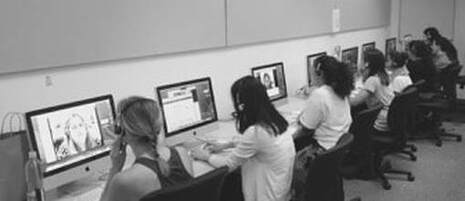
Starting in 2006, the thematic project Teletandem Brazil: Foreign languages for all (Proc. FAPESP 2006/03204-2) was concluded in April 2010, after its four-year term collaboration between teams of Brazilian and foreign researchers and a clear national and international visibility. Since this period in which the project was funded by FAPESP - Fundação de Amparo à Pesquisa do Estado de São Paulo (The São Paulo State Foundation for the Support of Research), the project has presented the evidence of educational, collaborative, educational and linguistic potential of online intercultural contact and communication by videoconference among foreign language learners.
|
The project production includes dissertations, theses and papers (click here to see its journal publications, theses and dissertations). The project also defined the concept of teletandem as a virtual, autonomous and collaborative context for learning foreign languages (Vassallo & Telles, 2006; Telles & Vassallo, 2006, 2009; Telles, 2009; Benedetti, Consolo, Vieira-Abrahão, 2010). It also described the multiple ways that learners use VOIP applications, and it presented suggestions for implementation strategies in the context of teletandem classrooms (Garcia, 2010, 2013; Cavalari, 2010a, 2010b; Candido, 2010). In addition, the project also presented the first possibilities of applying teletandem in the State of São Paulo public school system (Andreu-Funo 2011, Souza 2012 ). For these references, please, go to Project Publications on this site.
|
